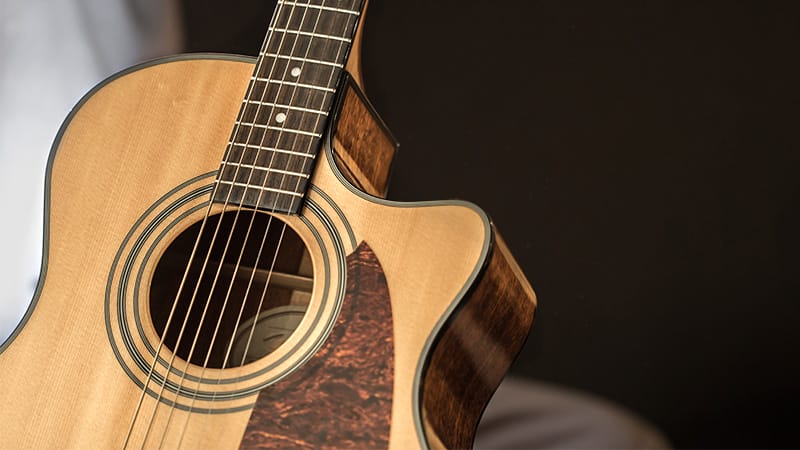In the realm of guitar craftsmanship, a new trend is emerging that harmonizes the art of luthiery with the principles of sustainability. Rachel Rosenkrantz, a master luthier based in Rhode Island, is at the forefront of this movement, creating a symphony of innovation by using biomaterials to construct guitars. Her journey into this niche field began in Paris when she was 21, where she initially faced discouragement from traditional luthiers. Despite this, Rosenkrantz’s passion for music and design led her to the United States, where she began to explore the intersection of these two worlds.
Rosenkrantz’s venture into biomaterials was born out of a concern for the environmental impact of conventional guitar-making practices. The industry’s reliance on rare and old-growth woods such as mahogany and rosewood has contributed to deforestation and the endangerment of certain tree species. The Brazilian rosewood, for example, has been heavily impacted by illegal logging and is now protected under international trade laws. This awareness prompted Rosenkrantz to seek alternatives that could reduce the ecological footprint of her craft.
In her pursuit, Rosenkrantz turned to mycelium, the vegetative part of fungus, known for its unique properties and sustainability. She discovered that when dried, mycelium could mimic the acoustic qualities of wood, making it an excellent material for guitar bodies. Her “Mycocaster” electric guitar is a testament to this innovation, combining mycelium with paper and natural fibers to create a rigid and resonant structure.
The tonal qualities of Rosenkrantz’s guitars are distinctive, with each biomaterial imparting its own sound. The “Mycocaster,” for instance, has a unique twangy and nasally tone that Rosenkrantz believes could inspire new genres of music. She has even integrated adjustable pickups and microphones into the mycelium body, allowing musicians to fine-tune the amount of “mushroom sound” in their music.
Rosenkrantz’s quirky creations sound slightly different from conventional guitars, depending on the biomaterial they are made from. The “Mycocaster” has a twangy and nasally tone. “I didn’t know it would have that timbre,” she said. However, it did make her think that these instruments could serve niche and perhaps novel genres of music.
Rosenkrantz’s clientele is as diverse as her instruments, ranging from film composers seeking versatile sounds to musicians desiring guitars with a sustainable backstory. She has crafted instruments like a nine-string baritone electro-acoustic guitar using waste fish skin and a dual-neck guitar from entirely upcycled materials, including vintage components and repurposed household items.
However, the innovation and bespoke nature of Rosenkrantz’s instruments come with a high price tag. According to CNN, the “Mycocaster” currently retails for $4,000, and while Rosenkrantz has several orders, she aspires to make her instruments more affordable. She dreams of a future where mushroom guitars are not a luxury but a standard, accessible option for musicians of all levels.
Rosenkrantz’s work is more than just a business; it’s a statement about the potential for sustainability in music. She is not just building guitars; she’s crafting a vision of the future where the weird becomes the norm, and where the music industry plays a harmonious part in the global effort to preserve our planet. Her belief in the transformative power of sustainable practices in guitar-making is a chord that resonates with the growing chorus of eco-conscious consumers and artists alike.
As Rosenkrantz continues to innovate and challenge the traditional norms of guitar-making, she remains hopeful. Her faith in the future is as steadfast as her commitment to her craft, and she stands as a beacon for those who believe that the path to a greener planet can be paved with the strings of a guitar. Her story is a compelling reminder that with creativity and conviction, the music industry can contribute to environmental stewardship in profound and melodious ways.
More inspiring green news similar to this:


